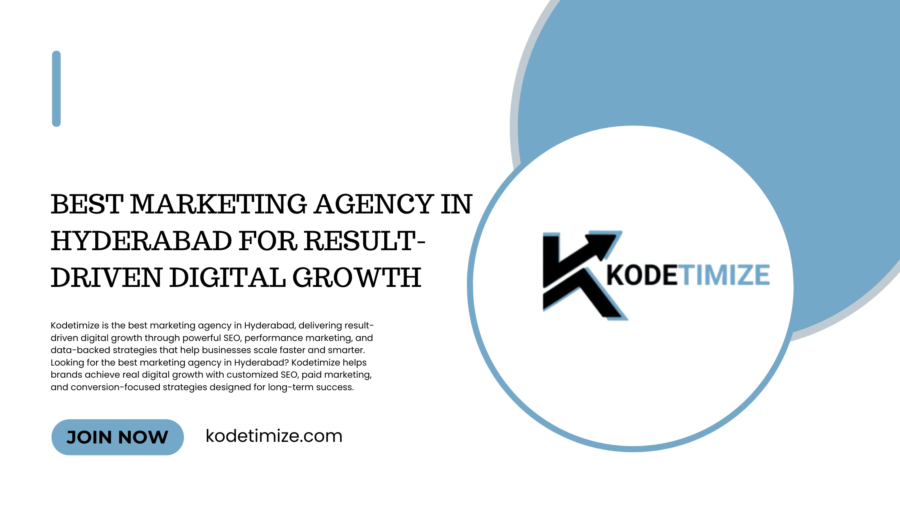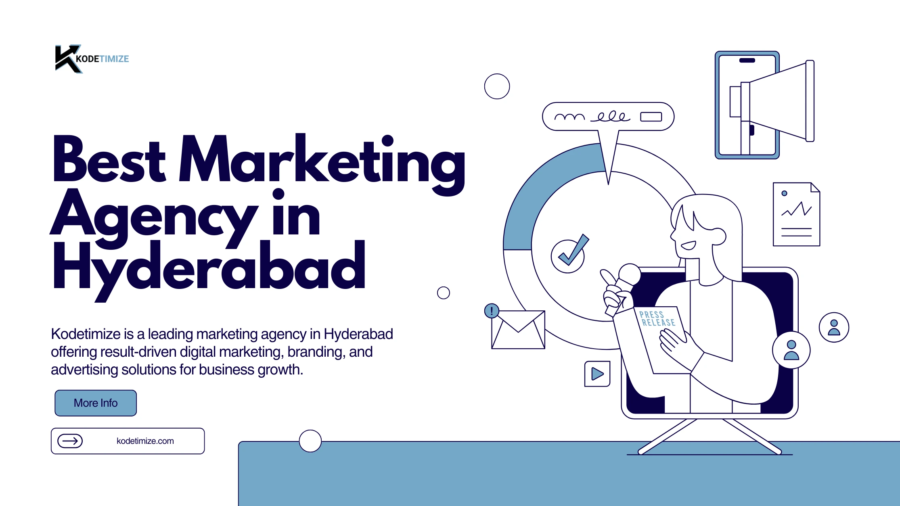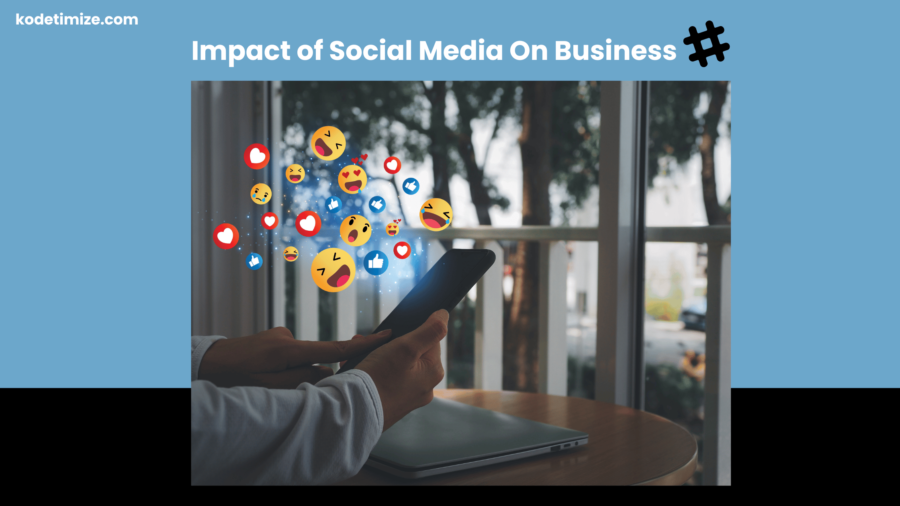In today’s competitive digital world, choosing the best marketing agency in Hyderabad is crucial for businesses looking to scale online, generate quality leads, and achieve measurable growth. Hyderabad has become a major hub for startups, SMEs, and enterprises—but only a few agencies truly deliver result-driven digital growth.
Kodetimize is one such marketing agency in Hyderabad that focuses on data-backed strategies, performance marketing, and long-term brand growth rather than vanity metrics.
Competitor Landscape: What Other Top Agencies Offer
After analyzing top-ranking competitors for the keyword best marketing agency in Hyderabad, here’s what most high-performing agencies have in common:
- Strong focus on SEO and organic growth
- Performance-driven paid marketing (Google Ads & Social Ads)
- Customized digital strategies instead of fixed packages
- Transparent reporting and measurable KPIs
- Industry-specific solutions
Kodetimize follows and improves upon these benchmarks by combining technical expertise, creative execution, and conversion-focused strategies tailored to each business.
Why Kodetimize Stands Out as the Best Marketing Agency in Hyderabad
| Aspect | Typical Marketing Agencies | Kodetimize |
|---|---|---|
| Strategy Approach | Generic, fixed packages | Customized, goal-driven strategies |
| SEO Focus | Basic keyword targeting | Advanced SEO with intent & local focus |
| Performance Marketing | Click-focused campaigns | ROI & conversion-focused campaigns |
| Reporting | Limited or delayed reports | Transparent, data-driven reporting |
| Tools & Analytics | Standard tools | Advanced analytics & performance tracking |
| Business Understanding | Surface-level | Deep industry & audience analysis |
| Results | Short-term visibility | Long-term, sustainable digital growth |
| Client Support | Limited communication | Dedicated support & regular updates |
What Makes a Marketing Agency Truly Result-Driven
To be regarded as the best marketing agency in Hyderabad for digital growth, an agency needs to deliver beyond basic outputs. Here are the traits that matter most:
1. Result-Driven SEO Strategies
Kodetimize uses advanced keyword research, technical SEO, on-page optimization, and authoritative link-building to improve rankings, traffic, and conversions—ensuring sustainable organic growth.
2. Performance Marketing That Delivers ROI
From Google Ads to Meta and LinkedIn campaigns, Kodetimize focuses on lead quality, conversion rates, and ROI, not just clicks or impressions.
3. Customized Digital Marketing Solutions
Unlike one-size-fits-all agencies, Kodetimize builds personalized marketing strategies based on your industry, audience behavior, competition, and business goals.
4. Data, Analytics & Transparency
Every campaign is tracked using real performance metrics like traffic growth, keyword rankings, leads, and ROI—so clients always know what’s working.
Digital Marketing Services Offered by Kodetimize
Kodetimize provides end-to-end digital marketing services, including:
- Search Engine Optimization (SEO)
- Pay-Per-Click Advertising (PPC)
- Social Media Marketing & Management
- Content Marketing & Copywriting
- Conversion Rate Optimization (CRO)
- Website Optimization & UX
- Performance Tracking & Reporting
- Local SEO for Hyderabad-based businesses
These services work together to create a strong digital presence and drive consistent business growth.
Why Hyderabad Businesses Choose Kodetimize
Hyderabad’s fast-growing business ecosystem demands smart and scalable marketing solutions. Kodetimize, based in Hyderabad, understands local market dynamics while delivering strategies that match global digital standards.
Whether you’re a startup, SME, or enterprise, Kodetimize helps you stand out in competitive markets and reach the right audience at the right time.
How Kodetimize Helps You Achieve Digital Growth
Kodetimize focuses on:
- Attracting high-intent traffic
- Improving search visibility
- Generating qualified leads
- Increasing conversion rates
- Building long-term brand authority
This holistic approach makes Kodetimize a trusted growth partner, not just a service provider.
Conclusion
If you’re looking for the best marketing agency in Hyderabad for result-driven digital growth, Kodetimize offers the perfect blend of strategy, creativity, and performance marketing. With a strong focus on measurable results, transparency, and customized solutions, Kodetimize helps businesses grow smarter, faster, and sustainably.
FAQs
1. What makes a marketing agency the best in Hyderabad?
The best marketing agency in Hyderabad focuses on result-driven strategies, transparent reporting, and measurable growth. Kodetimize stands out by delivering data-backed digital solutions that drive real business outcomes.
2. How do I choose the best marketing agency in Hyderabad for my business?
You should look for proven experience, strong case studies, customized strategies, and clear communication. Kodetimize works closely with clients to align marketing efforts with their specific growth goals.
3. What services does a top marketing agency in Hyderabad offer?
A top agency like Kodetimize offers SEO, PPC, social media marketing, content marketing, branding, CRO, and performance analytics under one roof.
4. Is hiring a local marketing agency in Hyderabad beneficial?
Yes, working with a local agency like Kodetimize ensures better market understanding, local SEO optimization, and audience-specific targeting.
5. How long does it take to see results from a digital marketing agency?
With Kodetimize, paid campaigns can start generating leads within weeks, while SEO-driven growth typically shows strong results within 3–6 months.
6. Are result-driven marketing agencies suitable for small businesses?
Absolutely. Kodetimize provides scalable and affordable digital marketing solutions for startups, SMEs, and growing businesses.
7. What is the cost of hiring the best marketing agency in Hyderabad?
Costs depend on services and goals. Kodetimize offers flexible pricing models to suit different business requirements and budgets.
8. Do marketing agencies in Hyderabad provide customized strategies?
Yes. Kodetimize focuses on fully customized, data-driven strategies rather than generic marketing packages.
9. How do marketing agencies measure digital growth?
Kodetimize tracks key metrics such as organic traffic, keyword rankings, lead quality, conversions, ROI, and engagement to measure growth accurately.
10. Why choose Kodetimize as the best marketing agency in Hyderabad?
Kodetimize combines strategic planning, creative execution, and performance marketing to deliver consistent, result-driven digital growth for businesses in Hyderabad and beyond.




